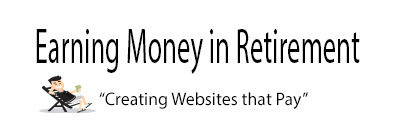Facebook as a Marketing Tool
It is well known that social media is here to stay and companies are running to use this huge social platform to promote their businesses. Yes, it is definitely huge, Facebook has over 400 million members worldwide and over 100 million in the US. The average Facebook user spends 55 minutes a day on FaceBook. Almost one hour each and every day. Then there is also Twitter, Linkedin, GooglePlus and more.
First Decision – Profile, Group or Page?
A Facebook PROFILE is your own personal account on Facebook. When you join Facebook, you get a Profile. On your timeline, you can talk to a friend, see their posts in your news feed, post your thoughts, pictures, etc. Everyone who joins Facebook gets one Profile, and according to Facebook Terms of Service you are allowed one, and ONLY one, Facebook Profile.
The Terms of Service also state that you may NOT use your Profile for business. The way I explain it is this: if people need to spend money to use your post, and you will personally profit when that money is spent, then you are not allowed to post it on a personal Profile.
A Facebook PAGE is like a business account on Facebook. You set up a Facebook Page by clicking the “Create a Page” link that appears at the top-right corner of the right sidebar on any other Facebook Page and then walk through some simple steps to set up your Page.
A business Page is an area on Facebook where people have to click the “Like” button in order to see your content in their news feed. Unlike the personal Profile, which is 2-way communication (i.e. When you friend someone through your Profile, you see their updates in your news feed, and they see your updates in their news feed), a Facebook Page is one-way only. This means that the person who likes your Page will see your Page updates in their news feed, but you will NOT see their Profile updates in your news feed.
Page owners can post stories, add a cover photo, host events and more. Remember, whose who have “liked” a Page will see the Page’s updates in their News Feeds. Facebook Terms of Service allow businesses to post updates from which they will financially profit because the people who have liked the Page have essentially “opted-in” to receive those updates from the business. They have given permission to have those business updates appear in their news feeds. So, you can make posts on specials, business news, and announcements, then you need to have a business Page.
Think of a Facebook Page as a Timeline for organizations, businesses, brands and public figures. Similar to profiles, Page owners can post stories, add a cover photo, host events and more. Those who have “liked” a Page will see the Page’s updates in their News Feeds.
Anyone can create a Facebook Page, but only official representatives can create and manage a Page for an organization, business, brand or public figure. To create a Page, all you will need is a Facebook profile. Profile owners can manage multiple Pages, and Page creators can give permission for others to be administrators to help manage the Page.
If you’re looking to promote your company or raise brand awareness, you’ll want to create a Facebook Page. You can share promotions, offer specials, make announcements and essentially, build a central fan base. It’s free to create, and once it is set up, the Page is optimized to look the same across computers, phones, tablets and other devices. Conveniently, there is a free Facebook Pages Manager app (Android, iOS) so owners can conveniently run the Page when they’re on-the-go.
Pages come with a set of features that profiles and groups don’t have, for example, the ability to manage notifications, messages and scheduled posts on the “Activity” tab. Pages also come with a section called “Insights,” which help track of how posts are performing and who is connecting to your Page. This section shares engagement information and breaks down the demographics of the Page’s fan base to help the creator understand who their fans are. In the “Settings” tab, Page owners can change visibility, choose whether they want people to post to the Page, enable messages, set up profanity filters and more.
Similar to profiles, Page administrators can view an activity log to see published posts and comments. In this log, administrators can delete posts, comments and hide or allow posts.
Designed to act more like a personal profile for businesses, public figures, and organizations, a Facebook page is basically a place to create an authentic representation of what you’re about. It’s very similar to a basic profile in structure and function, but the intent is for the actual page to become the entity rather than the person behind a profile. For instance, your brand is what’s known by its page – e.g. the Coca-Cola brand and its page and promotions and fans, not the CEO of the company and its followers.
Connecting with a page allows a user to closely follow the brand. Pages are also verified for authenticity and can help a brand develop a deeper level of trust.
A Facebook Group
Today, more than 500 million people use Facebook groups monthly, and thousands of groups are created daily. Like discussion forums, groups allow specific sets of people to share photos, links, updates and more.
To become a member of a group, go to the group page and click “Join Group” in the top-right corner. You can also join any public group that you see on the “About” page of someone’s Timeline, by clicking “Join.” To browse through the most popular groups your friends are in, type “Groups joined by my friends” in Facebook’s search bar.
Keep in mind that some groups are private, and you may have to wait until the group administrator approves your request. Depending on the group’s settings, you can also be added by a friend who’s already a member.
Groups are great for connecting family, peers, teammates, co-workers or people with a shared interest. Members can ask and answer questions, post about events or job openings and follow conversations about topics that interest them. Additionally, groups allow you to send mass messages directly to the group members’ inbox.
Groups have three privacy options. Here’s a rundown of what they are and what they mean:
- Public: Anyone can join or be added or invited by a member
- Closed: Anyone can ask to join or be added or invited by a member
- Secret: Anyone can join, but they have to be added or invited by a member
Pages act as profiles for entities, while groups act more like places for like-minded communication. People who share common interests and want to express their opinions in a safe forum will either join or become part of a group for these purposes. Charities, organizations, people with the same objectives, etc, all find groups very useful.
Of course, it’s not either-or here. You can always create a page and create and/or belong to a group. Your options aren’t limited in this respect. Just know that they’re different; so if you want to go the group route, that’s not a page, and vice versa.
The Pros and Cons of Pages and Groups
Page Pros:
- Pages are much easier to update and stand as better options for brands who frequently add new material
- A brand page looks more like a personal profile, so you can play to the social context of the site better and engage at higher levels
- Pages have customizable URLs and you can better promote the page to fans directly
- Pages give you more options for posting photos, events, various links, etc
- Page owners can distinguish their content from other content to make it stand out
- Pages allow you to create a banner and personalize the page more to your purpose
Page Cons:
- Pages are harder to grow organically and usually require a Facebook marketing tool and spending to give it a boost
- It typically takes a lot longer to promote a page, even though it’s easier to promote per options and function
- Conversations are more difficult to manage, especially between fans
- Everything’s more out in the open with a page, so you have to monitor things more closely
Group Pros:
- In groups, you can easily communicate with all members via chat, email, wall posts, messages, and even create a shared Doc
- A business is allowed to promote an event through Groups in general, whereas a page doesn’t allow that option
- Groups tend to display a higher degree of personality and even personalization since they’re often created to be personal presences rather than brand presences
- Making common connections is much easier through a group setting, particularly for businesses searching for contacts
Group Cons:
- Unlike pages, groups don’t allow you to add any additional applications for promotions or aesthetics
- For business purposes, it’s harder to keep track of what you’re doing in a group, because Facebook Insights is not available in this format
- The lack of a vanity URL makes it hard to fully customize and personalize a group
- In a group, you’re always going to be playing to a much narrower audience
- Groups are very difficult for other people to find unless they’re already part of a group or have a friend who joins
Deciding on a group or a page is probably going to boil down to what you’re trying to accomplish. If you’re part of an organizing committee or need to rely on other people and entities for business, a group might be more up your alley. Whereas brands looking to do business would be better served with a page to handle their presence.
Comments
I love to get comments and answer your questions. Please leave yours below. Also, if you have enjoyed reading this article and think others might also, please share with your friends and on your social media. Thank you for visiting my website – Shirley
NOTE: This post includes affiliate links, which, if clicked on and a product purchased, I get a small commission (with no increase in cost to you).



Oops, I learned something new today, Shirley, I have a personal FB account, and I always share all my postings there, that’s not allowed?
I use that account for everything I want to share, from my business and hobby websites.
Loes
I’ve created a special page for my Earning Money in Retirement posts. I still do post on my personal page but am trying to move a lot of my friends to like and following my other page too. I really do not want to have my Facebook page cut off. – shirley